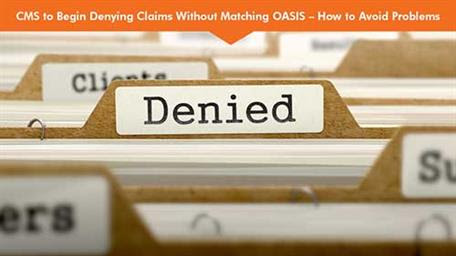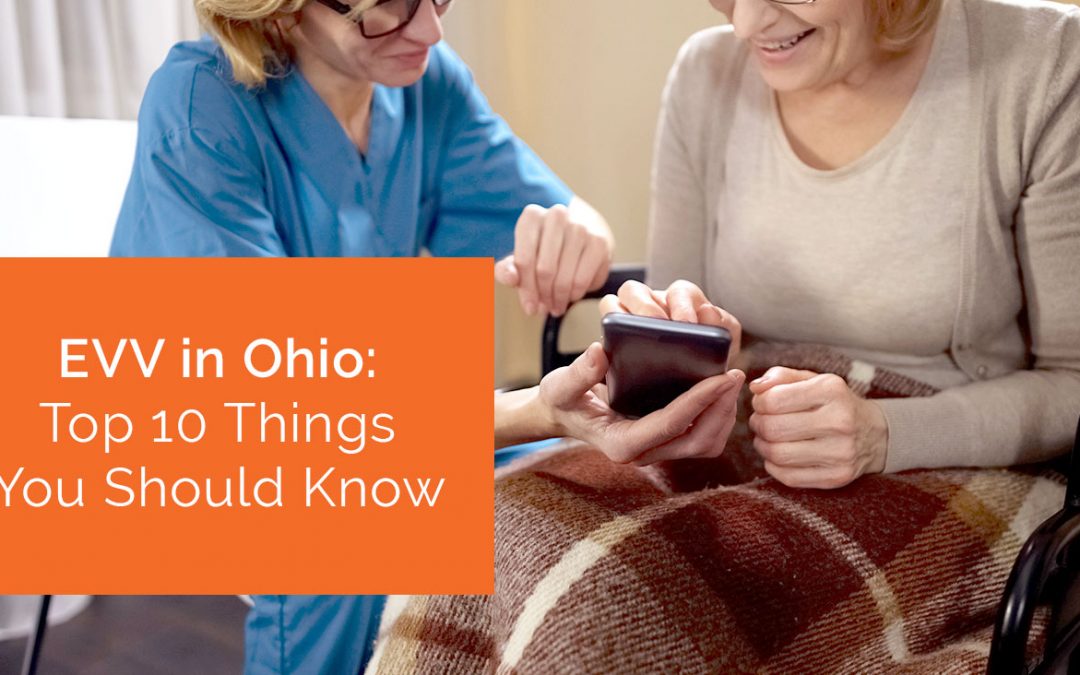Among the news of excessive claim denials under the pre-claim authorization demonstration project and the subsequent delays in extending the project to other states, home health agencies in all states now have a new payment policy to contend with. In late October, the Centers for Medicare and Medicaid Services (CMS) issues Change Request 9585, which establishes a policy that home health prospective payment system claims will be automatically denied if the appropriate Outcome and Assessment Information Set (OASIS) assessment cannot be found in the CMS Quality Improvement and Evaluation System (QIES). This new policy is set to become effective on April 1, 2017, with an implementation date of April 3.
This change is not a new policy, as CMS has been testing a system to compare the Health Insurance Prospective Payment System (HIPPS) codes on Medicare home health claims to OASIS assessments since April 2015. Since then, Medicare has been using the OASIS-generated HIPPS codes to issue payments for home health agencies if there was an OASIS assessment in the system and the submitted HIPPS codes differed. If there was no OASIS assessment on record, then CMS was paying claims based on the submitted HIPPS codes, and not denying claims. However, at the beginning of the test, CMS did announce that they would begin using the claims matching process as soon as possible, and denying claims when no corresponding OASIS assessment was found for the claim. In short, the implementation of this policy in April 2017 simply marks the enforcement of a policy that has long been in place.
Home health agencies are required by CMS to submit an OASIS assessment as a condition of receiving Medicare reimbursement for services rendered during home health episodes of care. The rules states that the OASIS must be transmitted within 30 days of completing the assessment, but in the majority of cases, the 30-day period ends before a 60-day episode of home health is completed and the final claim is prepared and submitted.
This can create issues, because if the OASIS is not found in the QIES system when that final claim is received, or if the claim is submitted more than 30 days after the OASIS is completed, CMS will deny the home health claim. That being said, CMS has clarified that claims for shorter periods of service (fewer than 30 days) that are submitted before an OASIS would be due will be processed normally and are not subject to the rule update.
Improving Your Agency’s Compliance
Clearly, given the potential impact of denied claims on your agency, it’s important that you make your OASIS claims a priority to ensure compliance. Denied claims not only disrupt your cash flow, but failing to comply with OASIS regulations could harm your agency’s quality score and cause problems with Medicare certifications.
Therefore, it’s important that you evaluate your OASIS procedures and make adjustments to ensure that you are fully compliant. This might include:
Updating your agency software. It’s important that your OASIS data is collected and transmitted in a timely manner, while also being as accurate as possible in reflecting the patient’s more current status. Your agency’s software should streamline this process, allowing for the integration of key patient data for the OASIS into your care records, as well as billing and payment systems. The OASIS process is inherently cumbersome, but with the right software, it can be less so and ensure that your agency runs efficiently and smoothly.
Ongoing education. A key aspect of OASIS accuracy and compliance is ongoing education. Your staff must be familiar with OASIS guidance, and be made aware of new updates and changes. Your OASIS training program must ensure that your clinical providers understand key terminology and have the ability to identify the appropriate levels of assistance for patients, understand the secondary impacts of common conditions, and evaluate functional ability. Your agency should have defined standards for subjective evaluations such as “safe ability” and “assistance,” in order to develop accurate and consistent assessments.
A priority on the Start of Care (SOC) assessment. SOC assessments are important for goal setting and evaluating outcomes — and a foundation of the OASIS itself. The SOC assessment allows for a comparison of the discharge scores and an objective evaluation of the quality of care, while also supporting the medical necessity of the services. Therefore, your staff should be trained to put a priority on accuracy in the SOC assessments, and ensuring that they are submitted in a timely manner.
For many agencies, the enforcement of OASIS submissions is not going to make a significant difference, as they are already complying with the directive. However, if your agency is struggling in this area, now is the time to get on track to avoid claim denials come spring. Complia Health can help; check out our resources here to learn more about how our advanced home health software can streamline your operations from initial assessments through discharge.




